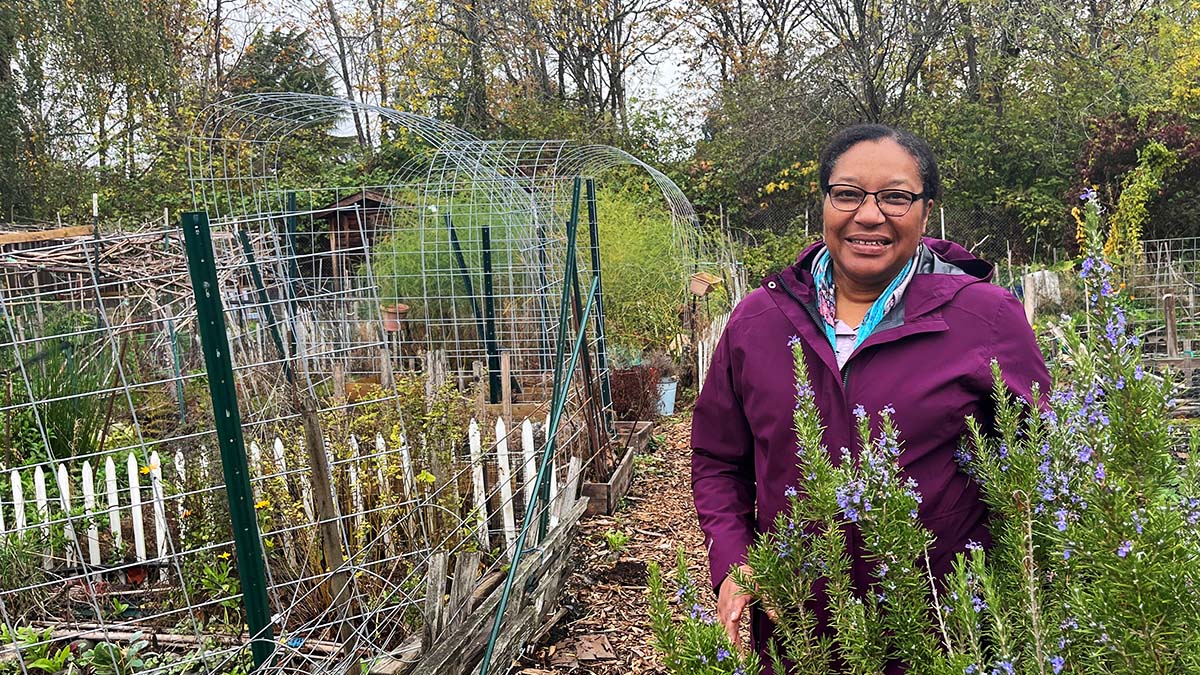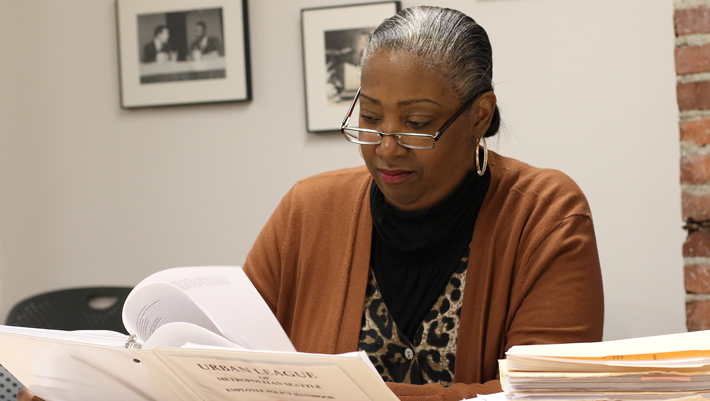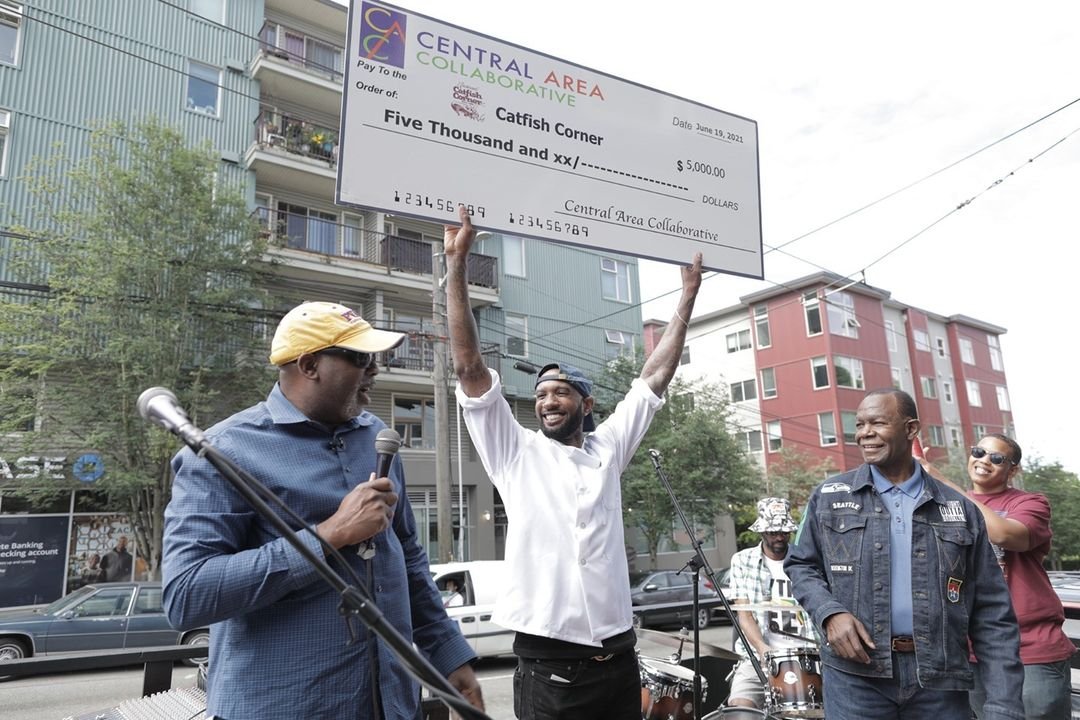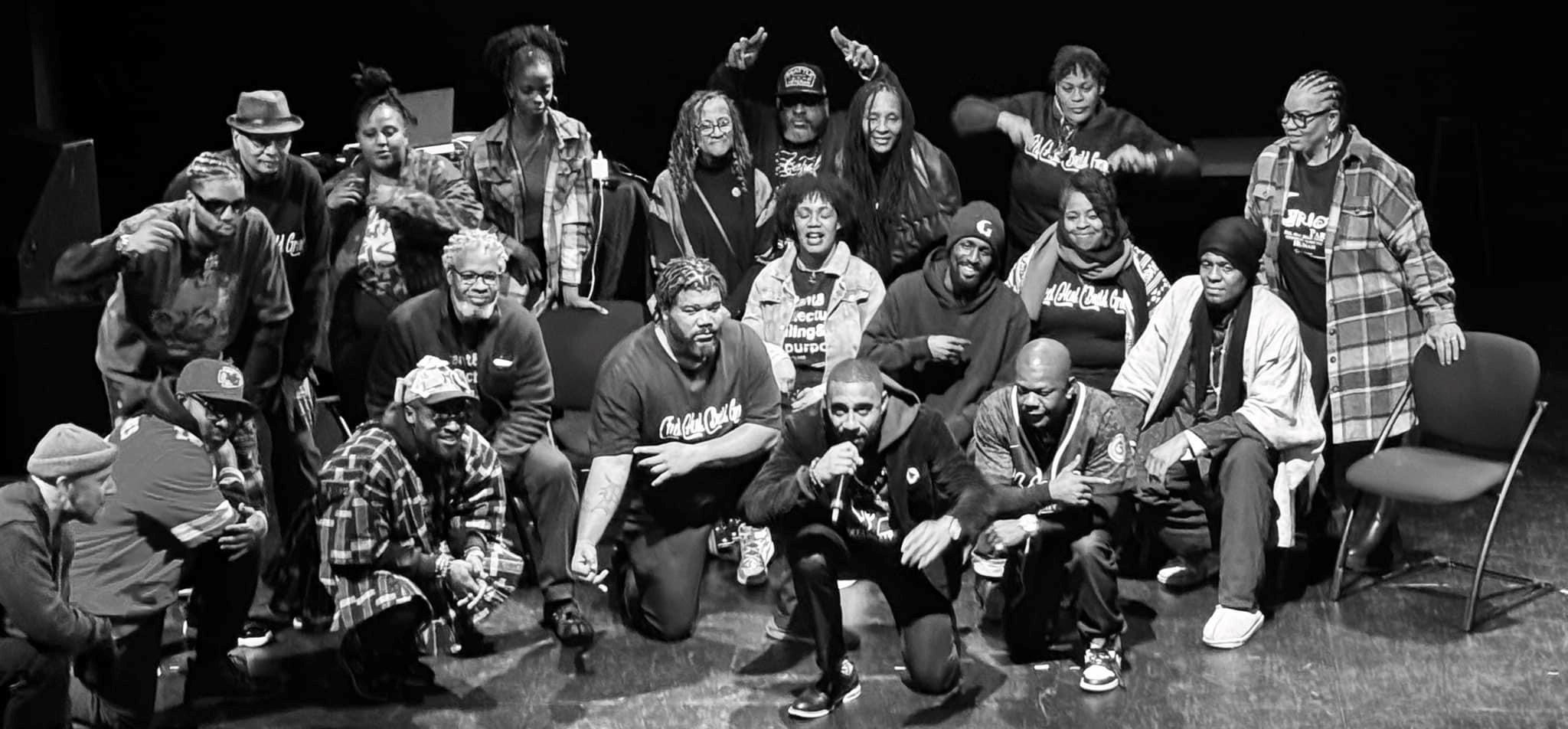
Marsha Tolon, Burke-Gilman P-Patch
What sparked your interest in gardening?
When I was a kid, our family would go to the grocery store, and I would always go to the magazine aisle and look at gardening and flower magazines like Sunset Western Garden. I’d read them while everybody else was shopping and that kind of continued into high school. I grew up in Everett, and even there we had Future Farmers of America, FFA, so I joined that. On this side of the mountains, it’s more horticulture focused, but we had some forestry classes at our high school. So that got me hooked, and I tried making a vegetable garden at home. From there I just had that interest in thinking about horticulture in my career. But I didn’t work on that part of my education until graduate school where I studied landscape architecture. I had that in my background, but I still wanted to garden so, that’s what brought me to the P-Patch Program.
How long have you been involved in the P-Patch program?
I’ve been part of the P-Patch system for 33 years! I started out at the Interbay P-Patch then got a plot closer to where I was living up on Phinney Ridge. My dream was always to have my own garden at my house, but I just enjoyed the community gardening. When I moved here, the surrounding housing development and the Children’s Center weren’t built yet. When the construction plans for the housing development were finished, I had the opportunity to help with the garden in drafting the layout, figuring out where the water lines would go, how the plots would be aligned, just designing a general layout and site plan. That in 93’ or 94’, then I got a plot and I’ve been in this garden since then. Around that time, I went through the King County Master Gardener program, and served on the board for a couple of years. Because this garden itself is one of the smaller ones, you kind of wear a lot of different hats. It’s been maybe for the last five or six years that I’ve co-facilitated with another person. Other people have worn the leadership hat, and I just always tried to fulfill assistance with Master Gardner knowledge and other things that were in my skill set.
How has the garden helped you meet and interact with people you might not otherwise cross paths with?
This garden, because of the housing complex and proximity to the University of Washington, has a lot of families from other countries and international students. I’ve just seen the world come through here. These plots here [pointing to nearby garden beds], the gardeners are from Vietnam, and from China over there, and Nepal. We’ve had someone from Iceland who was just here studying for a brief period, but they needed the outlet of gardening. Visiting professors from Minnesota, here for just a year and a half, but needed to have a space to garden for no other reason than to find community. And then the housing development, all the kids that are around plus the preschool. I know I should think of them differently, but I think of them as crops, this crop of kids. That plot [pointing across the garden] the one with the Dahlias, is the preschools’ P-Patch. I had a work friend who had her daughters there and I remember offering her some green beans and she’d just chow them down like nobody’s business. They weren’t washed or prepared or anything, but people just like being able to consume right from the P-Patch and that’s kind of fun.
You meet people from various backgrounds and various interests and that part is amazing. I get to learn the different ways different people grow food and how crafty they are using whatever they can find to make the things that we might buy, like tomato cages. Although English may not be the tool we can use to speak to one another, gardening has been that universal language. It just demonstrates to me that the garden is the world. It’s a microcosm of society and everything that happens within a community; how we work together to woodchip the paths and contribute at our work parties; how we get to know one another and share information; and how we work through conflict. There are all these different things going on that you have to address because we are all human.
Why do you think spaces like this garden are important?
It’s an active way of expressing oneself and expressing who’s there at that moment in time. I just think that these kinds of spaces are like breathing portals. Spaces where the community can exhale and inhale in a place that’s not overly developed, but there’s a lot going on if you choose to see it and enjoy it. I think about it as breathing, whereas physical structures are very static, this is always changing.
It’s so satisfying to come to this space on a warm summer’s day or after a long day at work, in the evening and it’s light and it’s still. Sometimes people are chattering, or you hear people on the Burke-Gilman Trail enjoying themselves, and other times you just hear people gardening and hanging out in their plot, doing their own thing. It’s very peaceful. I don’t know why; you just see more smiles when people are leaving. Even if they’re rushing in just to water or something, it’s a moment in nature and that’s a nice feeling. I cherish being able to come to my space and hang out with other gardeners and share thoughts and ideas. There’s nothing more enjoyable.


